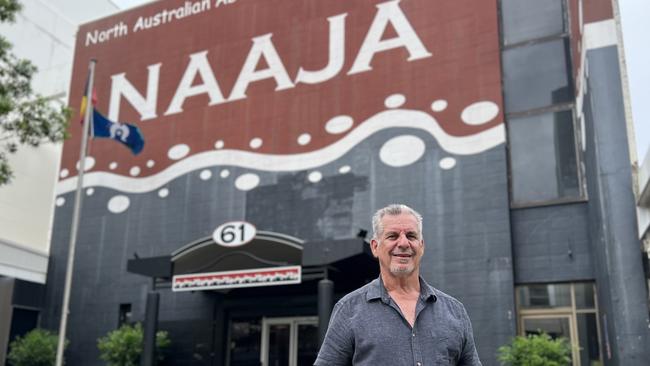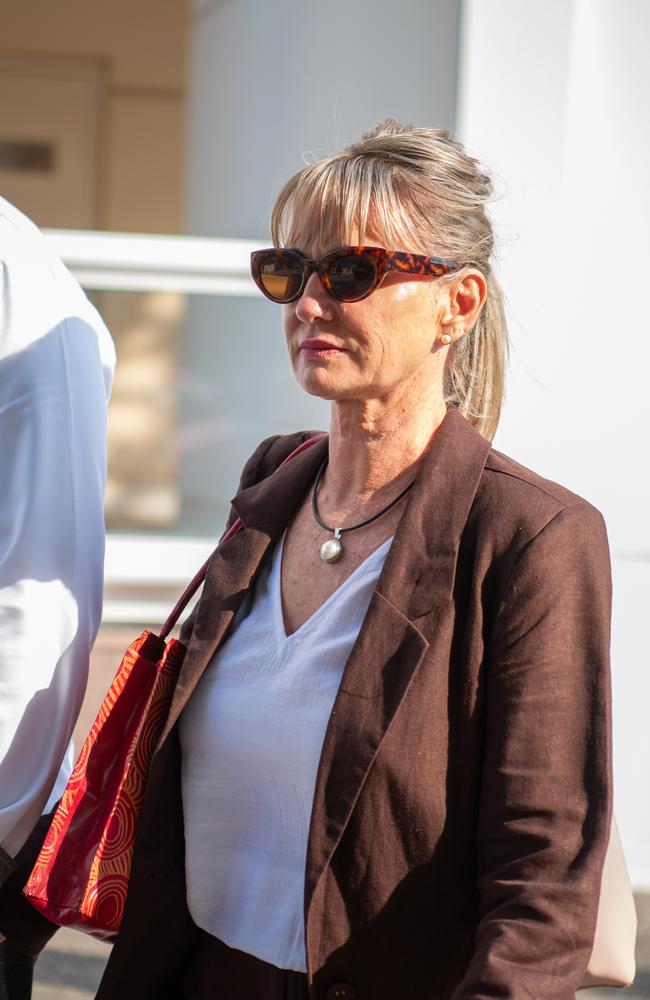North Australian Aboriginal Justice Agency could lose federal funding
The North Australian Aboriginal Justice Agency is facing another crisis, with revelations funding could be cut to the legal service.

Northern Territory
Don't miss out on the headlines from Northern Territory. Followed categories will be added to My News.
Australia’s largest Aboriginal legal service could be stripped of its funding amid a crisis that is seeing Indigenous people fronting court without representation.
The Commonwealth Attorney General’s department says it has altered arrangements for the North Australian Aboriginal Justice Agency, allowing the Northern Territory government to redirect funding to other organisations.
It follows revelations NAAJA has been unable to represent clients, particularly in Alice Springs, due to staff shortages following a mass exodus of employees over the past 12 months.
“We are greatly concerned by the current service reductions in Alice Springs,” the Commonwealth Attorney General’s department said in a statement.
“In the short-term, it is critical that necessary actions are taken to restore services in these areas.”
NAAJA receives more than $14 million a year in funding from the Federal Department of

Attorney General through the National Legal Assistance Partnership.
The money is distributed by the Northern Territory government under a five-year agreement that runs until June 30, 2025.
The Commonwealth has now altered these funding arrangements.
“Given the urgency of this situation, the Commonwealth and Northern Territory governments have taken the step to amend the Northern Territory’s NLAP bilateral schedule as an interim measure,” the department’s statement said.
“This measure is designed to maintain the essential legal assistance services for First Nations peoples, including criminal law services, while the ongoing issues at NAAJA are resolved.
“The suspension extends for the remainder of the current 2023-24 financial year.
“Under the amended bilateral schedule, the Northern Territory government has the temporary ability to re-direct Commonwealth baseline funding under the NLAP that is quarantined for Northern Australian Aboriginal Justice Association as the sole Aboriginal and Torres Strait Islander Legal Service in the Northern Territory to provide front line legal assistance services to First Nations peoples.”
NAAJA chief executive Darryl Pearce and board chairperson Collen Rosas have been contacted for comment.
This publication understands the Northern Territory government has given NAAJA until the end of this week to present a plan and show why it should not have its funding redirected to another body, such as the NT Legal Aid Commission.

It follows calls from one of the Northern Territory’s most experienced barristers for the removal of the NAAJA board and senior executive.
“There is only one solution to this now, and that is that the whole of senior management, that board, has to be hosed out completely and be replaced by people who know what they are doing,” John Lawrence SC told Laura Jayes on Sky News.
Mr Lawrence, a former senior lawyer at NAAJA and former president of the NT Bar Association, said the organisation had once functioned exceptionally well under the leadership of former board chairperson Pat Anderson.
But he said there had been a steady decline in the performance of NAAJA over the past decade.
Correspondence sent anonymously by NAAJA staff reveals there has been a morale crisis at NAAJA over the past 12 months and a mass exodus of staff.
Former chief executive Priscilla Atkins has been locked in a legal battle with the board and Ms Rosas after she was sacked in December 2022.
She has taken action in the Federal Court.
During a two-week trial last year Ms Atkins and Ms Rosas accused one another of misappropriating funds. The court is yet to make a ruling in the case.
Mr Lawrence said the chaos at NAAJA was contributing to record numbers of Aboriginal people in prison.
“What counts is their clients because it’s the most important legal practice and the biggest in the Northern Territory,” he said.
“And their task was representing the most marginalised and vulnerable, exposed people in this legal system which has now, in fact, become a prison system. It’s not even a legal system anymore.”





